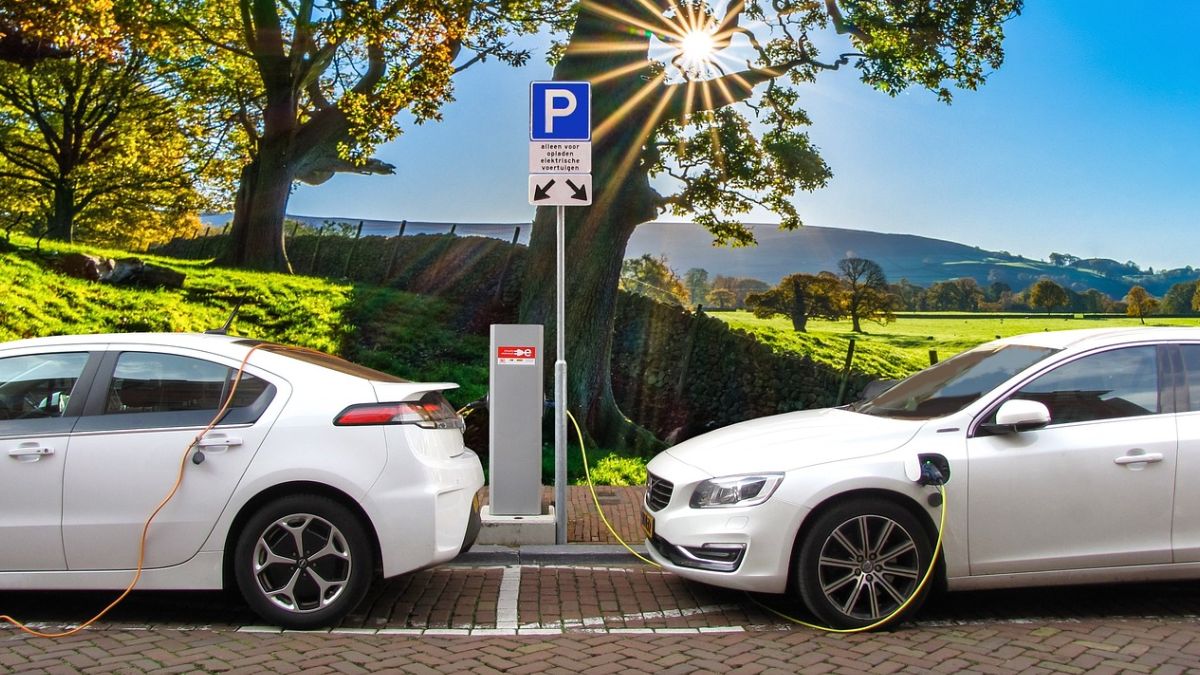In an era where environmental sustainability is of paramount importance, innovative technology solutions are playing a crucial role in addressing pressing environmental challenges. From renewable energy sources to waste reduction systems, sustainable technology is revolutionizing industries and paving the way for a greener, more sustainable future. In this article, we’ll explore some of the top sustainable technology solutions that are making a positive impact on the planet.
Renewable Energy Sources
Renewable energy sources such as solar, wind, and hydroelectric power are leading the transition towards a sustainable energy future. Solar photovoltaic (PV) panels harness the sun’s energy to generate electricity, while wind turbines convert wind power into clean, renewable energy. Hydroelectric power harnesses the energy of flowing water to generate electricity, with minimal environmental impact. These renewable energy sources offer reliable and sustainable alternatives to fossil fuels, reducing greenhouse gas emissions and mitigating climate change.
Energy-Efficient Technologies
Energy-efficient technologies play a crucial role in reducing energy consumption and minimizing environmental impact. From energy-efficient appliances and lighting to smart thermostats and building automation systems, these technologies help optimize energy usage and reduce carbon emissions. Energy-efficient buildings, in particular, employ design strategies and technologies to minimize energy consumption, such as passive solar design, high-performance insulation, and efficient HVAC systems, resulting in significant energy savings and environmental benefits.

Electric Vehicles (EVs) and Charging Infrastructure
Electric vehicles (EVs) represent a sustainable transportation solution that reduces reliance on fossil fuels and mitigates air pollution and greenhouse gas emissions. Advances in battery technology have extended the range and performance of EVs, making them increasingly viable alternatives to traditional gasoline-powered vehicles. In addition to EVs, the development of robust charging infrastructure, including public charging stations and fast-charging networks, is essential for supporting the widespread adoption of electric transportation and promoting sustainable mobility.
Green Building Technologies
Green building technologies focus on creating environmentally sustainable and resource-efficient buildings throughout their lifecycle. These technologies encompass sustainable materials, energy-efficient design, water conservation measures, and indoor environmental quality improvements. Features such as green roofs, rainwater harvesting systems, passive ventilation, and daylighting maximize energy efficiency and minimize environmental impact, leading to healthier and more sustainable built environments.
Waste Reduction and Recycling Systems
Waste reduction and recycling systems are integral to achieving a circular economy and minimizing the environmental impact of waste generation. Advanced recycling technologies, such as material recovery facilities (MRFs) and waste-to-energy (WTE) plants, enable the recovery and reuse of valuable resources from waste streams, reducing the need for landfill disposal and conserving natural resources. Additionally, initiatives promoting waste reduction, reuse, and recycling help divert waste from landfills and promote sustainable consumption and production practices.
Sustainable Agriculture and Food Systems
Sustainable agriculture and food systems utilize innovative technologies to promote environmental stewardship, preserve natural resources, and enhance food security. Precision agriculture technologies, such as GPS-guided tractors, drones, and sensor-based irrigation systems, optimize crop production while minimizing inputs such as water, fertilizers, and pesticides. Additionally, vertical farming, hydroponics, and aquaponics enable year-round cultivation of crops in urban environments, reducing food miles and promoting local food production.

Water Conservation and Management Technologies
Water conservation and management technologies help address water scarcity and promote sustainable water use practices. Advanced irrigation systems, such as drip irrigation and precision irrigation, deliver water directly to plant roots, minimizing water wastage and maximizing efficiency. Water reuse and recycling systems, such as graywater recycling and rainwater harvesting, capture and treat wastewater for non-potable uses, reducing demand on freshwater sources and alleviating pressure on water resources.
Carbon Capture and Storage (CCS) Technologies
Carbon capture and storage (CCS) technologies capture carbon dioxide emissions from industrial processes and power plants, preventing them from entering the atmosphere and contributing to climate change. Captured CO2 can be transported and stored underground in geological formations, such as depleted oil and gas reservoirs or saline aquifers, where it is permanently sequestered. CCS technologies play a crucial role in decarbonizing industries and achieving net-zero emissions targets.
Smart Grids and Energy Storage Systems
Smart grids and energy storage systems optimize the integration of renewable energy sources into the electricity grid, enhance grid reliability, and support demand response initiatives. Smart grid technologies enable real-time monitoring, control, and optimization of energy flows, while energy storage systems, such as batteries and pumped hydro storage, store excess renewable energy for use during periods of high demand or when renewable generation is low. These technologies facilitate the transition to a more flexible, resilient, and sustainable energy system.
Sustainable Packaging Solutions
Sustainable packaging solutions aim to reduce the environmental impact of packaging materials and promote circularity and resource efficiency. Biodegradable and compostable packaging materials offer alternatives to traditional plastics, while lightweighting and minimalist packaging designs minimize material usage and waste generation. Additionally, initiatives promoting reusable packaging, refillable containers, and packaging-free alternatives help minimize packaging waste and promote sustainable consumption habits.
Sustainable technology solutions are driving innovation and transformation across various sectors, offering viable pathways to address environmental challenges and promote sustainability. From renewable energy sources and energy-efficient technologies to waste reduction systems and sustainable agriculture practices, these technologies play a crucial role in building a more resilient, equitable, and sustainable future for generations to come. By embracing and investing in sustainable technology solutions, we can accelerate progress towards a more sustainable and prosperous world.










